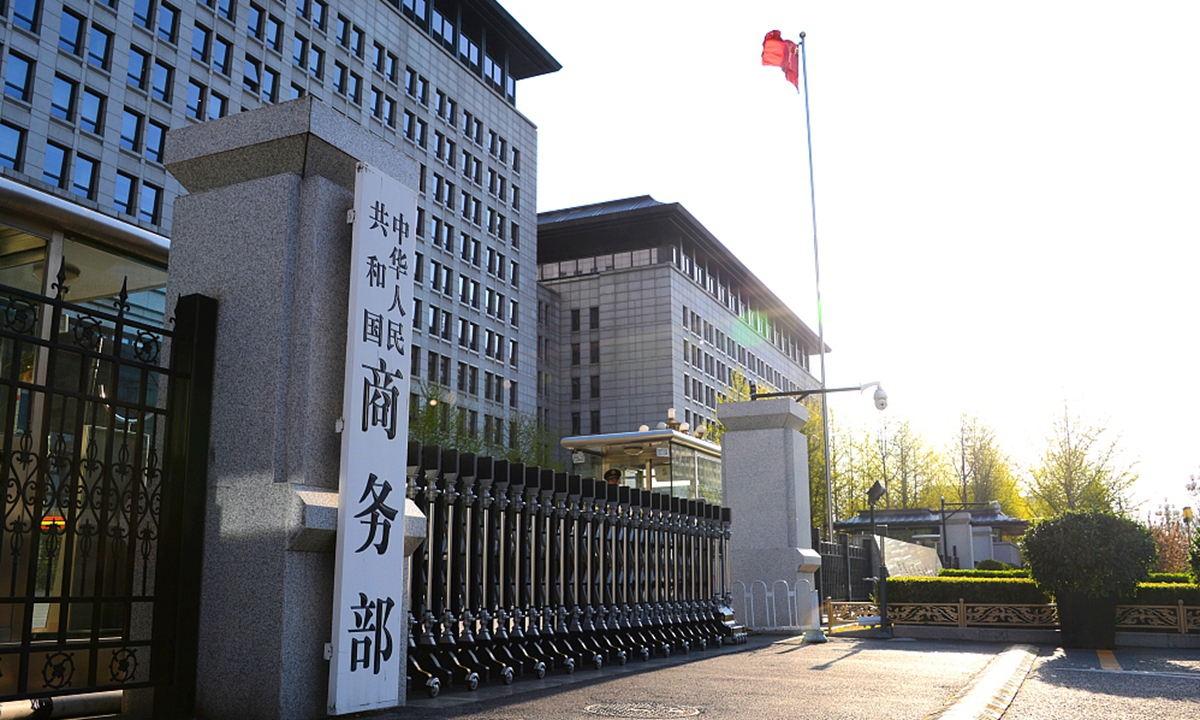(Source:Global Times,2024-11-11)

The Ministry of Commerce Photo: VCG
China's Ministry of Commerce (MOFCOM) announced on Monday that Chinese investigating agencies decided to impose temporary anti-dumping measures against brandy imported from the EU, according to a supplementary notice released on Monday.
Starting from November 15, when importing the products under investigation, importers must submit deposits or letters of guarantee to China's customs authorities based on the dumping margins as specified in the announcement, according to the MOFCOM.
Experts noted that in contrast with the EU's unilateral move of launching an anti-subsidy investigation into Chinese electric vehicles (EVs), the MOFCOM's decision is in line with China's domestic laws and WTO rules, and the investigation is based on the demands of the related industry. They urged the bloc to respect and attach importance to the benefits brought by the interdependence of China-EU economic and trade relations.
On January 5, China decided to launch an anti-dumping investigation into brandy imported from the EU following a request from the domestic brandy industry. On August 29, the MOFCOM said that a preliminary assessment showed that the imported brandy from the EU involves dumping, and the domestic brandy industry is under substantial threat of damage, and there is a causal relationship between the dumping and the substantial threat of damage, read the announcement.
The investigated products are spirits obtained by distilling grape wine in containers holding less than 200 liters, which are usually called brandy and mainly used as an alcoholic beverage for human consumption, according to the announcement.
The announcement detailed companies for whose products importers must provide deposits or letters of guarantee, with dumping margins ranging from 30.6 percent to 39.0 percent for each company. Sampled companies included Martell & Co, whose margin ratio was 30.6 percent, Jas Hennessy & Co, whose ratio was 39.0 percent, and E. REMY MARTIN & C°, whose ratio was 38.1 percent. The companies that cooperated with the investigation had a dumping margin of 34.8 percent, while the rest were subject to a dumping margin of 39.0 percent.
Imposing temporary anti-dumping measures against EU brandy is consistent with WTO procedures and international practice, Jian Junbo, a deputy director of the Center for China-Europe Relations at Fudan University's Institute of International Studies, told the Global Times on Monday, noting that the move aims to protect the legitimate rights and interests of the domestic industry.
Chinese Commerce Minister Wang Wentao on November 3 met with visiting French trade official Sophie Primas in Shanghai, noting that in contrast to the EU's abrupt launch of an anti-subsidy investigation (into Chinese EVs) without any industry request, China's trade remedy probes into European brandy, pork and dairy products were all initiated in response to applications from China's domestic industries in full compliance with WTO rules and Chinese laws.
China will continue to conduct investigations strictly in accordance with laws and regulations, safeguarding the legitimate rights of companies from EU member states, including France, and will make rulings based on facts and evidence, said Wang, noting that China is willing to work with the European Commission to seek an appropriate solution.
Wang emphasized that the EU's anti-subsidy investigation into Chinese EVs is significantly hindering cooperation between the Chinese and European automotive industries and is a major concern for both sides.
Jian urged the bloc to stop the politicization and pan-securitization of economic and trade issues with China, as protectionist measures by the EU, which are not in line with WTO regulations, will cast a shadow over normal economic and trade exchanges between China and the EU.
However, the degree of interdependence of trade and economic relations between China and Europe is still quite deep and cannot be easily decoupled, so the two sides should strengthen the management of economic and trade conflicts or frictions at the bilateral level, and seek multilateral solutions such as the WTO, Jian noted.






